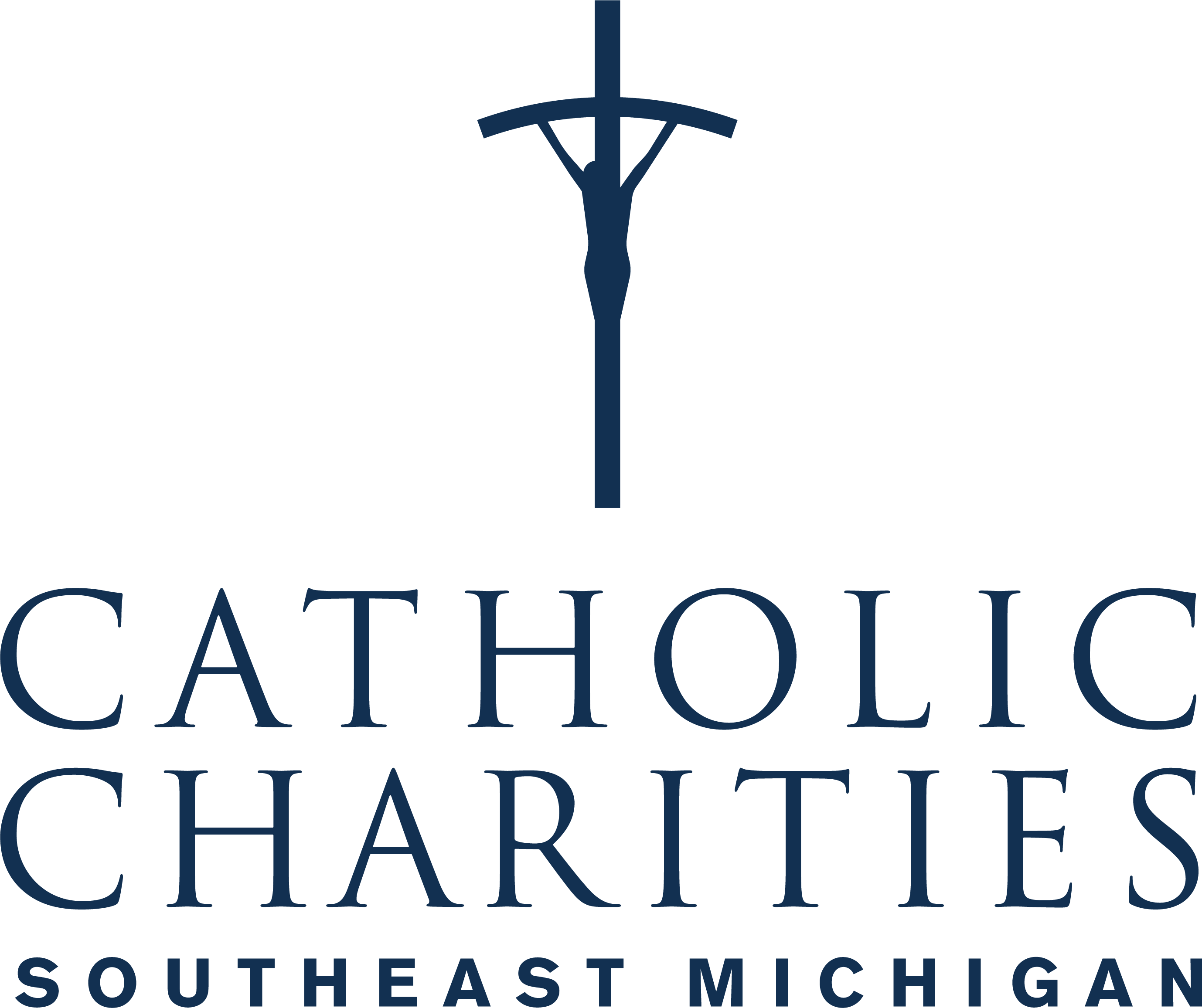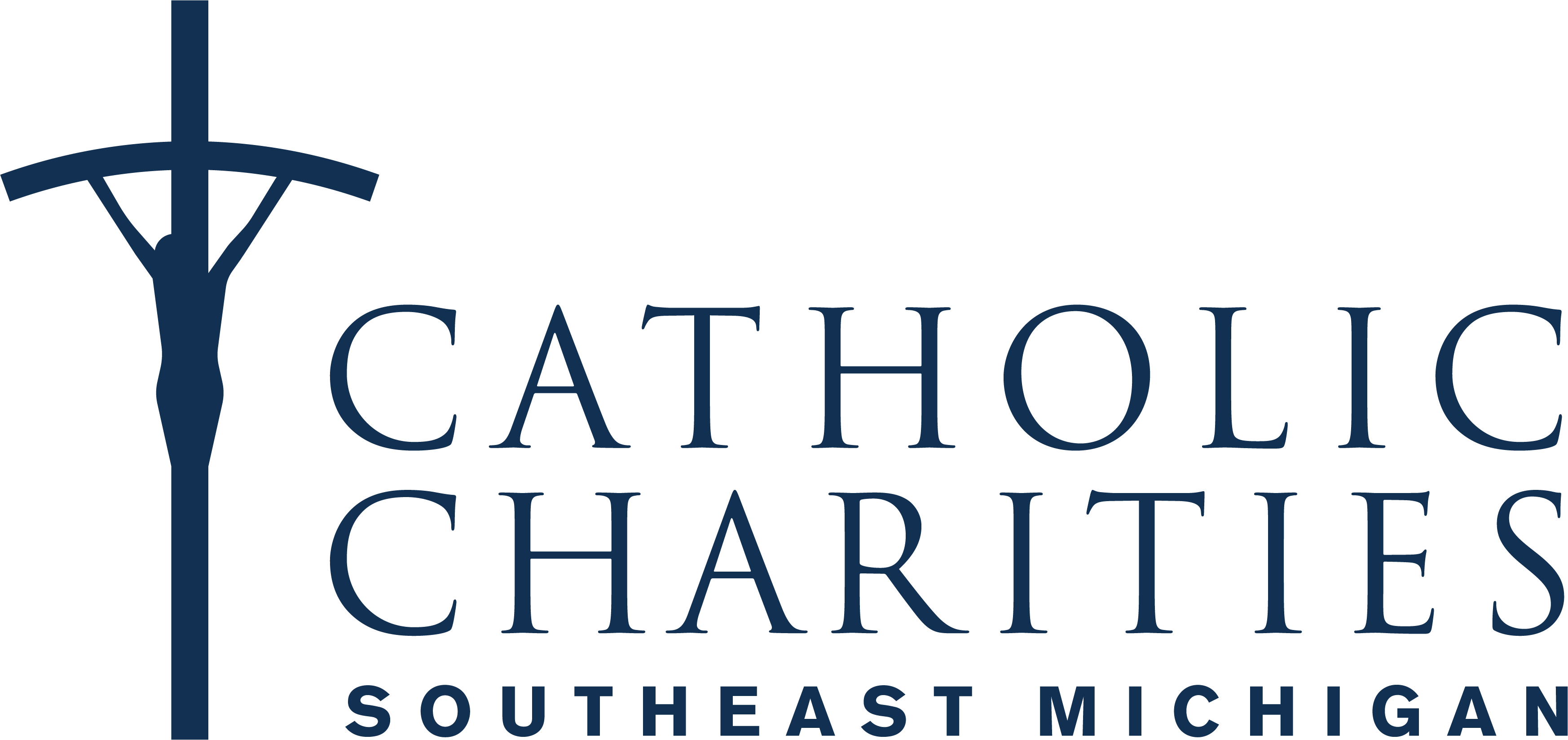Clinton Township — Atheel Zora was once asked why refugees keep coming to the United States.
“I said there are a lot of reasons why they are leaving their country,” said Zora, a resettlement specialist with Catholic Charities of Southeast Michigan’s (CCSEM) immigration and refugee services. “If they’re feeling safe, if they feel like there’s a future for them, then no one would leave that place.”
But, Zora continued, “if you have no future, if you have no security, if you don’t have anything that you can say ‘I belong to,’ then people start leaving.”
Zora lived and worked in his homeland of Iraq until difficult circumstances caused him to have to leave the country in 2000.
Going first to Germany, he eventually made his way to the United States in 2001 to join family members who also lived in the States. In March 2013, he joined the immigration and refugee services staff of Catholic Services of Macomb — what today is CCSEM’s immigration and refugee services.
Though he struggled “a little bit,” his process of transitioning to the U.S. was not as hard as often is for other refugees. Zora explained that he had a “U.S. tie” with family members already in the country, and his relatives assisted him with settling in.
Still, “it was a process,” he said. And today, as he assists many refugee families who are seeking a fresh start or the security they lost in their homelands, “it’s crucial to have the knowledge, have the experience” to relate to their situations.
Jeralda Hattar, director of CCSEM’s immigration and refugee services, said the nonprofit operates two different programs: the refugee resettlement services, and the immigration legal services program.
“Refugee” is a specific term for an individual who has faced persecution for a number of reasons, such as faith, race, ethnic group, social group or gender, Hattar said.
“They are in a situation where their government is either unable or unwilling to protect them,” said Hattar, adding that CCSEM’s services seek to help these individuals as they transition to the U.S. and resettle.
Sometimes it is a case of assisting with difficult legal processes; sometimes it is directing a refugee to food or housing assistance in the Metro Detroit area.
Hattar said that while immigration services assist individuals of many backgrounds, refugees currently directed to CCSEM for resettlement are only from Iraq, though there is a possibility of assisting other nationalities next fiscal year.
Hattar explained that their services “never turn someone away: we talk to them, figure out whether we’re able to assist them or not, and provide them with a referral” if necessary.
Monica Tay Belej, who is an immigration attorney with the program’s legal services, said she generally works with families who are petitioning reunification and/or naturalization.
She said some people who “have followed all of the steps” will still face discrimination just because they are assumed to have “jumped to the front of the line or didn’t do everything properly.”
“I think a lot of people see the immigration issue as people are either citizens or they’re illegal,” said Tay Belej. “(Others) don’t see that people could be here on a temporary visa, (or) they have legal residency, (or) they’re in the processes of adjusting their status.”
She is touched by the strength of her clients, some of whom have not seen family members for as many as 20 years due to complicated legal situations.
“Really I see the resiliency of the human spirit with my clients,” she said.
Hattar said many people forget that refugees and immigrants were “contributing members of society” in their homelands, and can still contribute to their new home in the U.S.
“Doctors, engineers, teachers,” she said. “Very highly educated individuals that had great lives, and all of a sudden everything was shattered … the fact that they have survived, the fact that they still have a smile on their faces, and the fact that they still have strong faith … is unbelievable.”
She said often these individuals are seen as “a burden on society, which is very difficult for us as a Catholic institution, because we are called as human beings and as Catholics and as Christians to uphold and apply what the Bible says and what Christ himself called us to do. And that is to welcome the stranger and to serve one another.”
Hattar always remembers a story from when their program once received a grant from the Catholic Legal Immigration Network, Inc., (CLINIC), of whom they are an affiliate.
With the funds, they held a naturalization workshop and citizenship education classes at Ukrainian Village Senior Independent Living in Warren.
“There were two little old ladies, one was Chaldean and one was Ukrainian,” Hattar said. “They had learned so much English by then … they were talking about how they lived next to each other for so many years and never said a word to another.”
However, having attended the classes together, “they became such good friends, they were telling me how they cook their own food and share with each other. It was the sweetest thing.”
By the numbers
6: Michigan’s rank on the list of refugee arrival states
841 refugees served by CCSEM in 2013
6% of all refugees entering the U.S. come to Michigan
20% of refugees entering Michigan receive services from CCSEM
How to help
Catholic Charities of Southeast Michigan’s immigration and refugee services are at 15945 Canal Road, Clinton Twp., MI, 48038. Visit their website at https://ccsem.org/.
- To find out more about CCSEM’s immigration and refugee services program, contact Jeralda Hattar, director, at (586) 416-1113 ext. 4018, or email at hattarj@ccsem.org.
- To donate or to volunteer with the program, contact Farrah Shammas, community outreach coordinator, at (586) 416-1113 ext. 4021 (Editor’s note: This number was incorrect in The Michigan Catholic’s Aug. 8 edition).
- For immigration-related legal issues, contact Monica Tay Belej, immigration attorney, at (586) 416-1113 ext. 4023.



